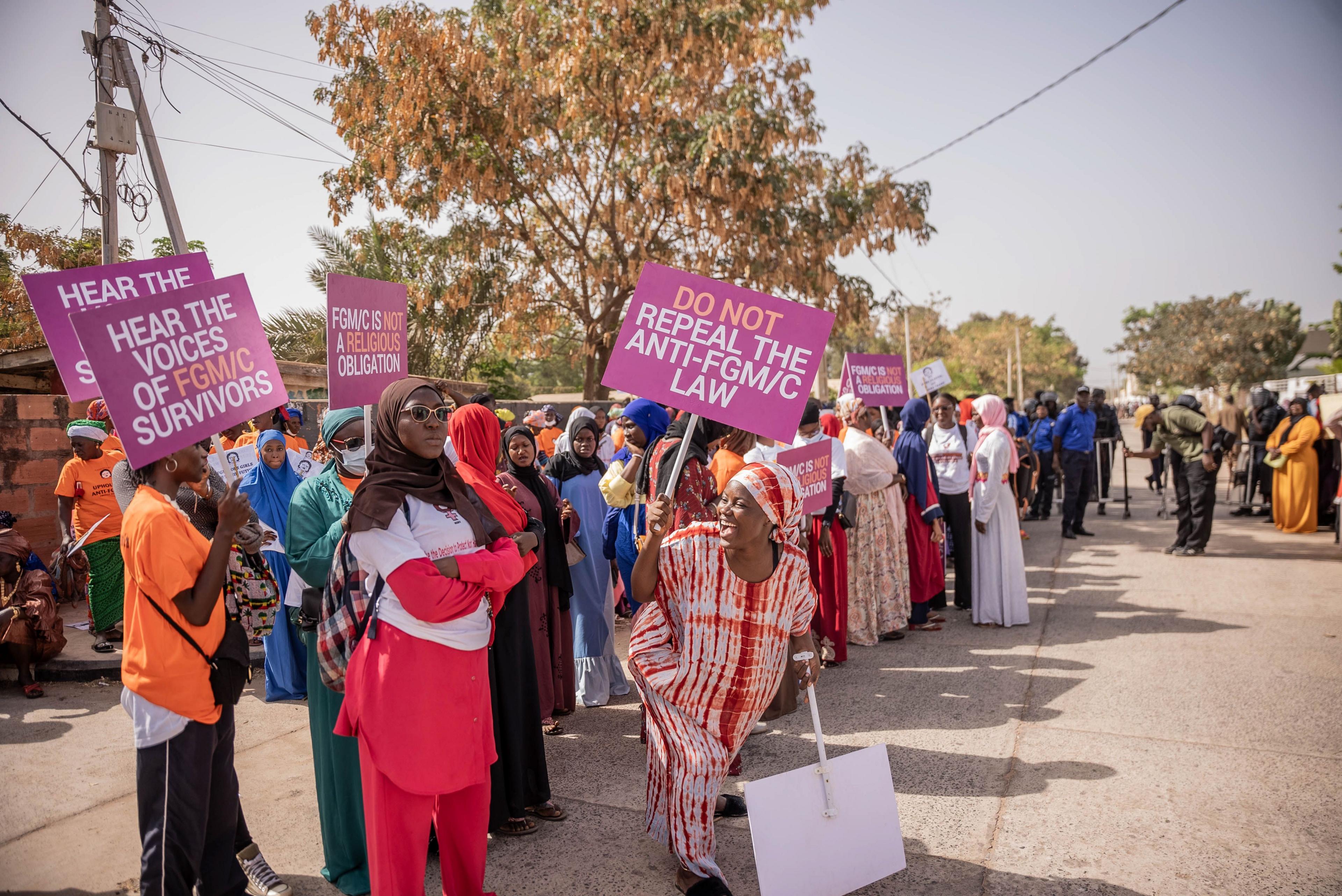Award for anti-FGM campaigner's decade-long effort
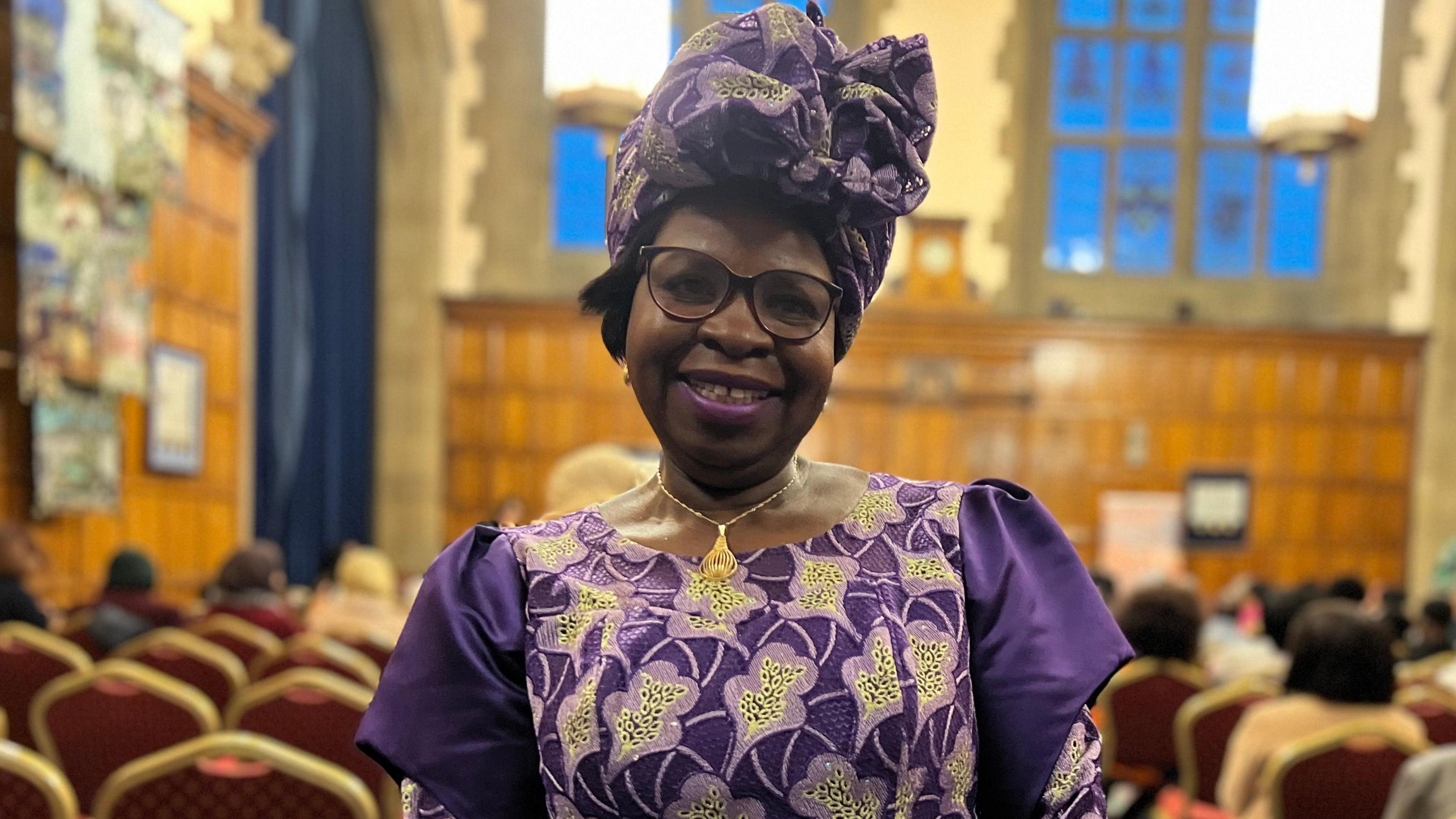
The work of Dorcas Amusan-Fagborun was recognised at the Africa4U awards in Bradford
- Published
A victim of female genital mutilation (FGM) whose campaigning to raise awareness of the issue has been recognised at an awards ceremony in Bradford has said her work was "for the community".
Dorcas Amusan-Fagborun, 67, who was circumcised in Nigeria when she was a very young child, was one of 10 people recently honoured at the Africa4U Awards in the city.
Ms Amusan-Fagborun said earlier in her life she had not realised that FGM, which in the UK is both illegal and recognised as child abuse, was an issue, but she had since learned more about it and dedicated herself to campaigning against it.
She said: "Many women don't even realise they are survivors."
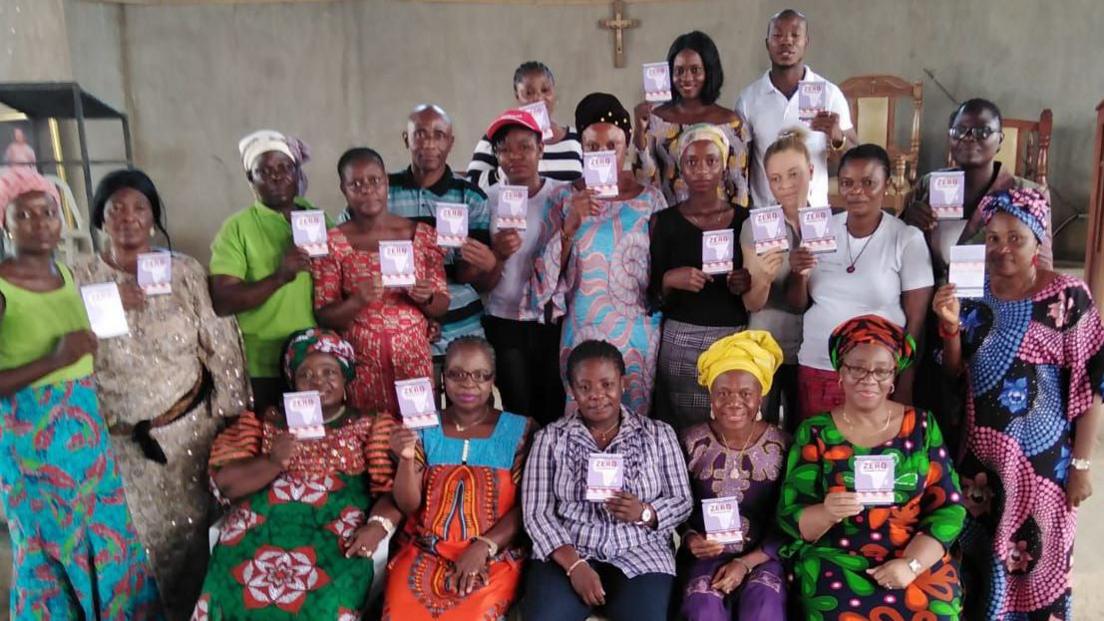
Ms Amusan-Fagborun has done much work abroad highlighting the issues of FGM
Ms Amusan-Fagborun, who grew up in Nigeria and moved to the UK with her family in 1991, said: "I was circumcised when I was a baby. One of my children was also circumcised when she was nine days old in a government hospital.
"Growing up, we were told that women had to go through it, and there were many taboos around it.
"For example, we were told we shouldn't marry men from cultures where women are not circumcised."
Ms Amusan-Fagborun admitted it had been a challenging journey to change hearts and minds on an issue that for a long time even she had not acknowledged as a problem.
"It was around 1993 when I was doing my Master's in Women’s Studies at Bradford University. We had a seminar on FGM and, at first, it felt like an attack on our culture," she said.
"But later, I attended another seminar by a gynecologist, and for the first time I saw the different types of FGM. That was when I began to question why these differences existed."
The latest NHS data published last month, external showed there were 6,655 individual women and girls who had sought medical treatment where FGM was a factor in the year to March.
Almost 800 of those women and girls were from Yorkshire and the North East, the statistics showed and, while GP visits have increased, it is believed the true numbers remain under-reported.
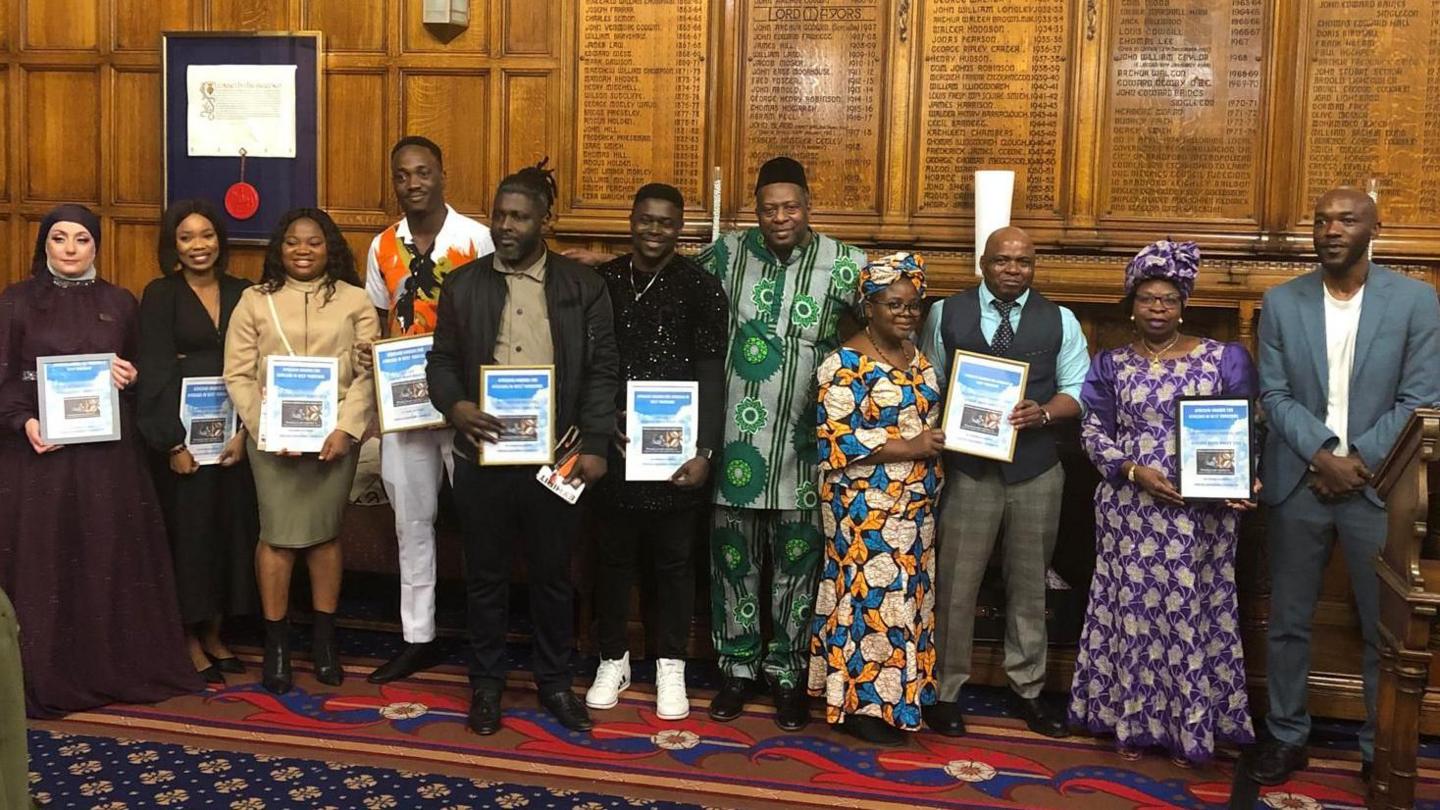
Winners of the Africa4U awards at Bradford's City Hall
Ms Amusan-Fagborun's work with charities Peacemaker International and Women in Safe Hands has seen Bradford become the second city in the UK to declare zero tolerance towards FGM.
She said: "It took me until 2014 to speak out publicly against it. Many women don't even realise they are survivors.
"One of our clients was circumcised while she was seven months pregnant because of the belief that if the baby's head touched the clitoris during labour, the baby would die.
"When I finally told my daughter she was also a survivor, she said, 'that explains the missing part'. She had never spoken about it before, but now she understood.
"So, I campaign to ensure no child has to go through this."
Speaking about receiving the Africa4U award, Ms Amusan-Fagborun, who was appointed MBE in 2018, said it was "a great feeling to be recognised", especially during Black History Month.
"While I do this work for the community, it’s nice to know people see the impact," she said.
Africa4U awards organiser Tony Tokunbo Fernandez, an author and peace ambassador who also hosts a Black History Month event at the Houses of Parliament, said it was "essential to highlight the true stories of people who are making a difference, especially the unsung heroes".
Related internet links
More stories like this
- Published21 July 2024
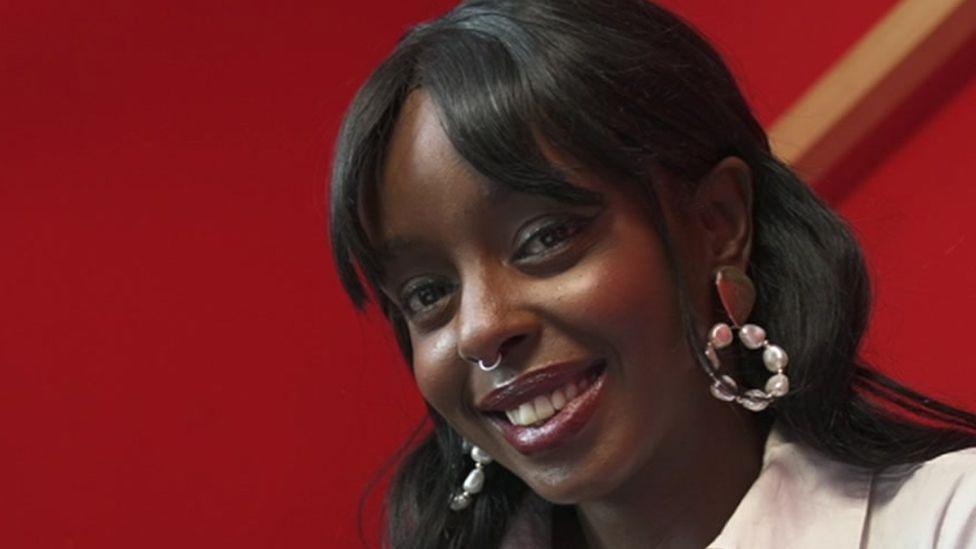
- Published15 July 2024
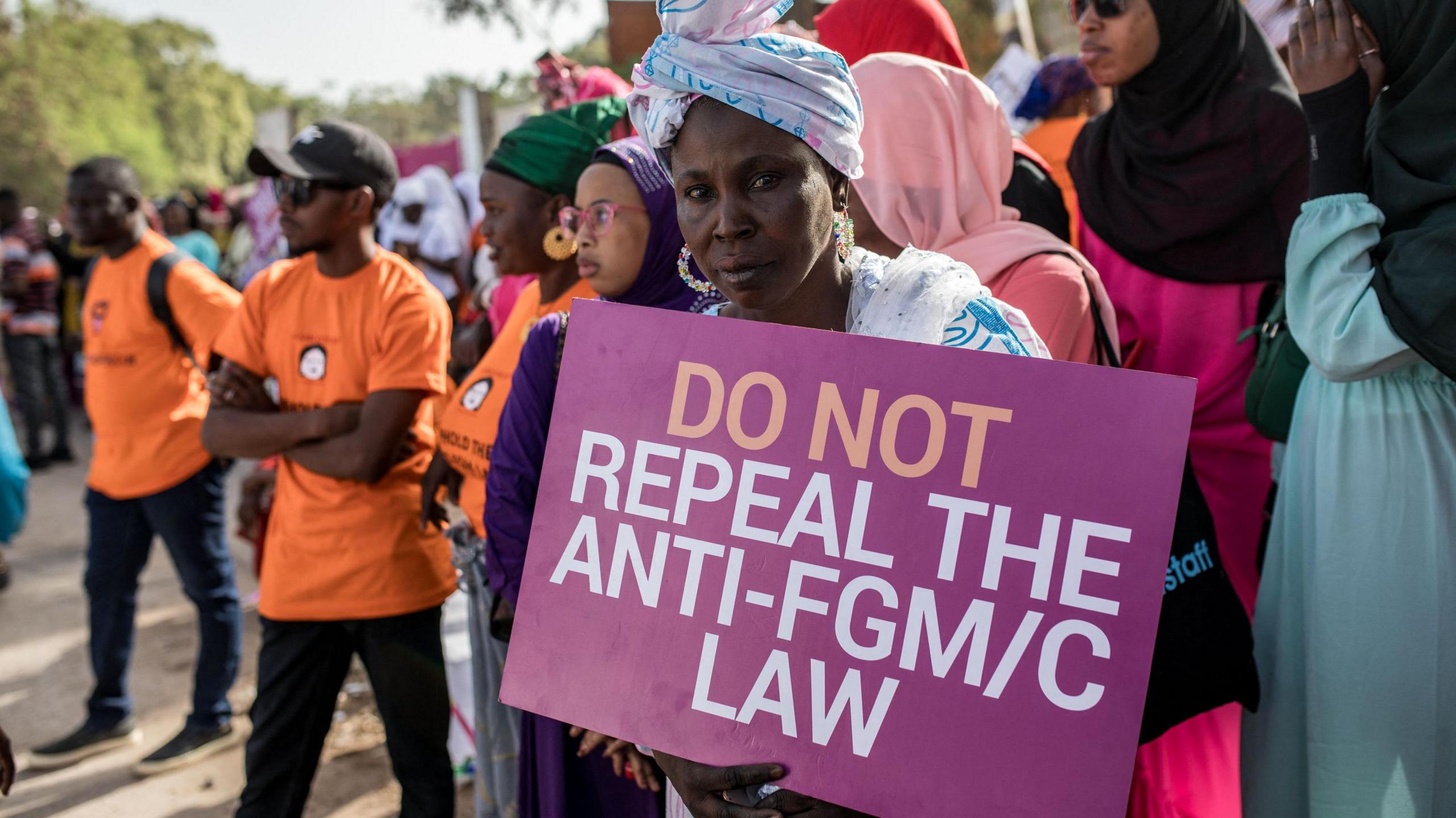
- Published8 January 2024

- Published26 May 2024
